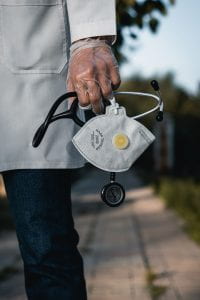 The pandemic has undoubtedly had an effect on everyone’s lives– whether that’s in the form of switching to online classes, undergoing stress and responsibility at work, dealing with the effects of the virus first hand as an essential worker, experiencing the consequences of social distancing on mental health, coping with the loss of loved ones, and more.
The pandemic has undoubtedly had an effect on everyone’s lives– whether that’s in the form of switching to online classes, undergoing stress and responsibility at work, dealing with the effects of the virus first hand as an essential worker, experiencing the consequences of social distancing on mental health, coping with the loss of loved ones, and more.
Albany’s Response to COVID-19
In previous weeks, the Albany area has followed social distancing measures laid out by Governor Andrew Cuomo. Schools are closed until the end of the academic year (and summer classes will be done remotely as well), and all non-essential businesses, such as gyms and hair salons, have also been closed (1). Additionally, all hospitals in New York were asked to cancel elective procedures and increase the number of beds, as coronavirus cases were growing (2). To assist all of the families that are experiencing financial hardship since many have lost their sources of income, $200 million in food assistance was also made available (2).
In Albany, mobile testing sites have been made available throughout the week. I think this can be especially helpful for people that might not be able to travel far to get tested if they have symptoms. More information about the specific days/location/times that testing is available can be found here.
Getting Back to “Normal”
Governor Cuomo has announced a 4-phase plan of reopening New York. I’ve included an image summarizing the main reopenings in each phase. The guidelines for deciding to open a region in NY again are here.
As of May 20th, the Capital District, which includes Albany, has started Phase 1 of reopening New York.
For a lot of us, I think it can be relieving to hear that we are going back to “normal,” but it’s important to not take advantage of the reopening and stop practicing social distancing altogether. For all of the work that healthcare providers, government officials, and the general public has done to decrease the spread of the virus, staying safe and healthy and keeping others safe will still be important. I’m not sure what the new “normal” will look like, but I hope that as we start reopening, that the stress on healthcare workers, on families that are experiencing loss and financial hardship, and on everyone going through a hard time, will be alleviated soon. How do you think your community will have changed after the pandemic?